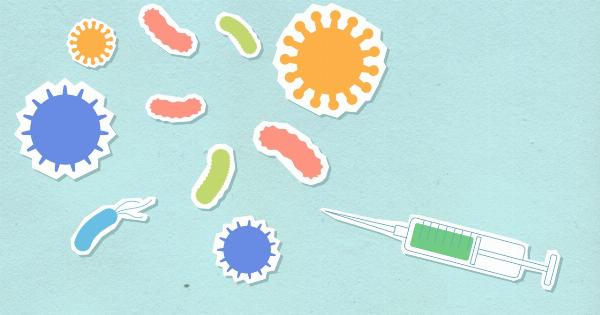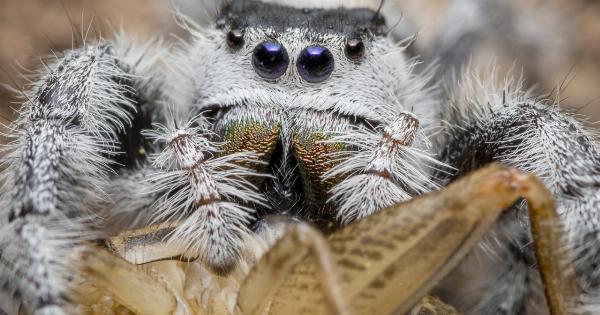Welcoming a newborn into your family is an incredible joy, but it also comes with a great responsibility to protect their fragile health.
Newborns are particularly susceptible to infections, and it’s crucial to take proactive measures to keep them safe. In this article, we will discuss effective ways to protect newborns from dangerous infections and help them stay healthy.
1. Maintain Good Hygiene
One of the fundamental ways to safeguard your baby’s health is by ensuring good hygiene practices.
Wash your hands thoroughly with soap and warm water before touching your baby, especially after using the bathroom or when you come home from outside. Encourage other family members and visitors to do the same.
2. Follow Proper Immunization
Vaccination plays a pivotal role in protecting newborns from various serious illnesses. Follow the recommended immunization schedule provided by healthcare professionals diligently.
Vaccinations such as Hepatitis B, Diphtheria, Tetanus, Pertussis (DTaP), Haemophilus influenzae type b (Hib), Pneumococcal Conjugate (PCV13), and Rotavirus are crucial to help strengthen your baby’s immune system.
3. Promote Exclusive Breastfeeding
Breast milk is considered nature’s perfect food for newborns, providing them with essential nutrients and immune-boosting antibodies.
Breastfeeding exclusively for the first six months helps protect your baby from infections and reduces the risk of respiratory and gastrointestinal diseases.
4. Ensure Safe Handling of Bottles and Formula
If you are using formula or expressed breast milk, ensure that bottles, nipples, and other feeding equipment are thoroughly cleaned and sterilized before each use.
Follow the manufacturer’s instructions for preparation and storage of formula or breast milk to prevent contamination. Proper hygiene practices during bottle preparation help minimize the risk of infections.
5. Practice Safe Sleep for Newborns
Creating a safe sleep environment for your baby is crucial to reduce the risk of sudden infant death syndrome (SIDS) and respiratory infections.
Always place your baby on their back to sleep and use a firm mattress with a fitted sheet in a crib or bassinet without any loose bedding or toys. Avoid bed-sharing as it increases the risk of accidental suffocation or overheating.
6. Limit Visitors and Encourage Cleanliness
Limiting visitors during the initial weeks helps reduce exposure to potential infections. Encourage family members and friends to wash their hands thoroughly before touching the baby.
Ensure that anyone with cold or flu-like symptoms refrain from visiting until they are well. Maintain a clean and sanitized environment in your home to minimize the risk of infections.
7. Keep Your Baby Away from Tobacco Smoke
Keep your baby away from secondhand smoke as it increases the risk of respiratory infections, asthma, and sudden infant death syndrome (SIDS). If you or someone in your household smokes, make sure it is done outside, far away from the baby.
It is also advisable to ask visitors to refrain from smoking near the baby or bringing smoke particles on their clothes.
8. Practice Proper Handwashing Techniques
Handwashing is an essential and simple way to prevent the spread of infections. Make sure to wash your hands before feeding, changing diapers, or touching your baby’s face.
Use warm water and soap, rubbing your hands together for at least 20 seconds. Encourage family members and visitors to follow proper handwashing techniques as well.
9. Maintain Cleanliness in the Household
Regularly clean and disinfect commonly touched surfaces and objects in your home, such as doorknobs, light switches, toys, and countertops. Use appropriate disinfectants and follow the instructions for disinfection.
Maintaining cleanliness in your household helps reduce the chances of your baby coming into contact with harmful germs.
10. Be Cautious with Pet Interactions
If you have pets in your home, it’s crucial to be cautious with their interactions with your newborn. Ensure that pets are up to date with vaccinations and regularly dewormed.
Avoid leaving your infant alone with pets and supervise their interactions at all times. Teach older children how to handle pets gently and maintain good hygiene practices afterward.
By following these important steps, you can create a safe and healthy environment for your newborn, minimizing their risk of dangerous infections.
Remember, prevention is always better than cure, and taking proactive measures is essential in safeguarding your baby’s health.































